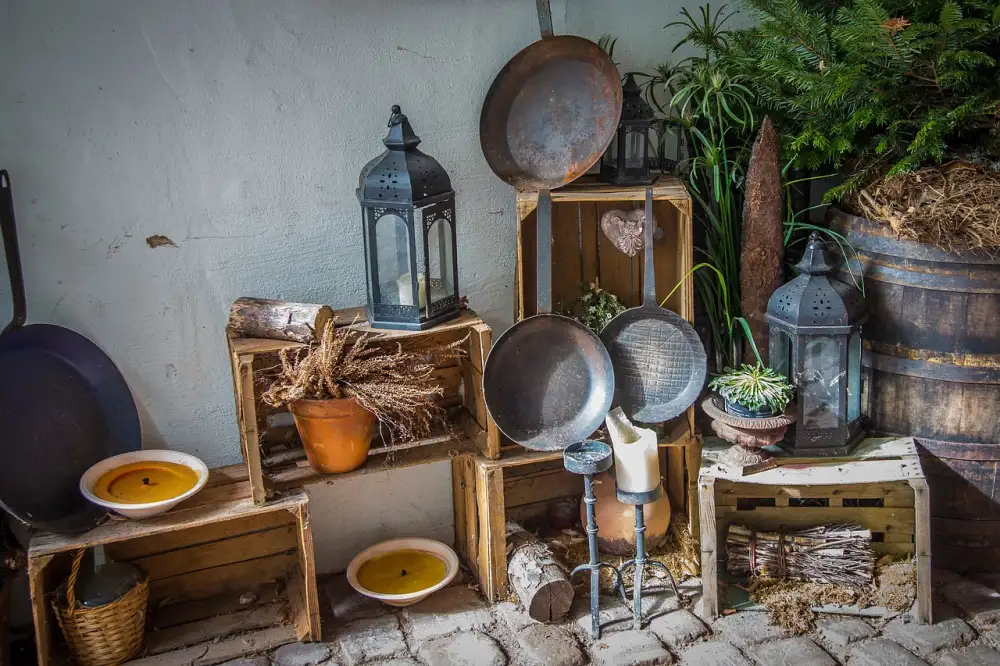Discover Non-Toxic Kitchen Appliances for a Healthier Home Environment

In today's health-conscious world, the importance of using non-toxic kitchen appliances cannot be overstated. These appliances are designed to minimize the release of harmful chemicals and substances into the air and food, promoting a healthier home environment. By choosing non-toxic kitchen appliances, you can reduce your exposure to potentially hazardous materials commonly found in conventional appliances. From cookware to small kitchen gadgets, there is a wide range of non-toxic options available on the market to help you create a safer and more sustainable kitchen space.
Benefits of Using Non-Toxic Kitchen Appliances
**Benefits of Using Non-Toxic Kitchen Appliances**
Investing in non-toxic kitchen appliances offers numerous benefits for both your health and the environment. These appliances are free from harmful chemicals such as BPA, phthalates, and lead, which can leach into food and cause health issues over time. By using non-toxic appliances, you can reduce your exposure to these harmful substances, leading to improved overall well-being. Additionally, non-toxic appliances are often more energy-efficient, helping you save on utility bills while also reducing your carbon footprint. Overall, choosing non-toxic kitchen appliances is a step towards creating a healthier home environment for you and your family.
Common Harmful Substances Found in Conventional Kitchen Appliances
Common harmful substances found in conventional kitchen appliances include bisphenol A (BPA) and phthalates, which are often used in plastic components. These chemicals can leach into food when exposed to heat or acidic conditions, posing health risks such as hormone disruption and potential links to certain cancers. Additionally, non-stick cookware may contain perfluorooctanoic acid (PFOA), a compound that has been associated with various health issues including thyroid disorders and developmental problems. Regular exposure to these substances through kitchen appliances can have long-term negative effects on human health.
Tips for Choosing Non-Toxic Kitchen Appliances
When choosing non-toxic kitchen appliances, look for products that are labeled as BPA-free, lead-free, and phthalate-free. Opt for appliances made from stainless steel, glass, or ceramic materials instead of plastic. Research the brand's reputation for using environmentally friendly and non-toxic materials in their products. Consider energy-efficient models to reduce exposure to harmful substances released during high heat cooking. Look for certifications such as ENERGY STAR or UL Environment to ensure the appliance meets safety and environmental standards.
Top Non-Toxic Kitchen Appliance Brands
When it comes to choosing non-toxic kitchen appliances, there are several reputable brands that prioritize safety and sustainability. Some of the top non-toxic kitchen appliance brands include:
1. **Vitamix**: Known for their high-performance blenders that are free from harmful chemicals like BPA.
2. **All-Clad**: Offers a range of cookware made from stainless steel, which is a safe and durable material.
3. **Breville**: Produces juicers, toasters, and other small appliances with a focus on quality and safety.
4. **Le Creuset**: Famous for their cast iron cookware coated with enamel that is free from toxic substances.
5. **Miele**: Provides energy-efficient and non-toxic dishwashers and refrigerators for a healthier kitchen environment.
These brands have established themselves as leaders in the industry by providing consumers with reliable, non-toxic options for their kitchen needs.
How to Maintain and Clean Non-Toxic Kitchen Appliances
Maintaining and cleaning non-toxic kitchen appliances is essential to ensure their longevity and effectiveness in promoting a healthier home environment. Here are some tips to help you keep your non-toxic appliances in top condition:
1. Regular Cleaning: Wipe down the surfaces of your non-toxic appliances with a damp cloth and mild detergent regularly to remove any food residue or stains.
2. Avoid Harsh Chemicals: When cleaning non-toxic appliances, steer clear of harsh chemical cleaners that can leave behind toxic residues. Opt for natural cleaning solutions like vinegar and baking soda instead.
3. Check for Wear and Tear: Periodically inspect your non-toxic appliances for any signs of wear and tear, such as frayed cords or loose parts. Address any issues promptly to prevent further damage.
4. Follow Manufacturer's Instructions: Always refer to the manufacturer's guidelines for specific maintenance instructions tailored to your non-toxic appliance. This will help you properly care for your appliance without compromising its quality.
5. Schedule Professional Maintenance: Consider scheduling regular maintenance checks with a professional technician to ensure that your non-toxic appliances are functioning optimally and free from any potential hazards.
By following these simple maintenance tips, you can prolong the lifespan of your non-toxic kitchen appliances and continue to enjoy a healthier cooking environment for years to come.
In conclusion, investing in non-toxic kitchen appliances is a crucial step towards creating a healthier home environment. By choosing appliances free from harmful substances like BPA, lead, and phthalates, you can reduce your exposure to toxins and improve the overall air quality in your kitchen. Opting for reputable non-toxic kitchen appliance brands ensures that you are prioritizing your health and well-being. Remember to maintain and clean your appliances regularly to prolong their lifespan and effectiveness. Ultimately, making conscious choices about the products we bring into our homes can have a significant impact on our overall health and well-being.
Published: 29. 04. 2024
Category: Home



